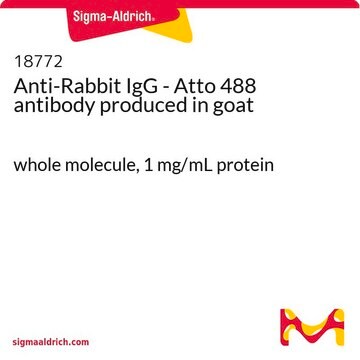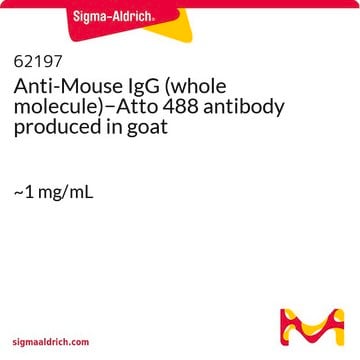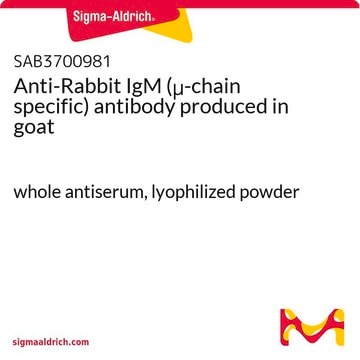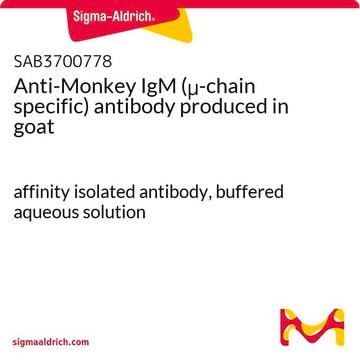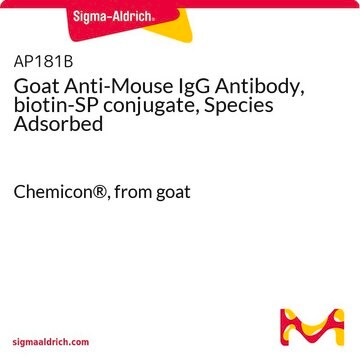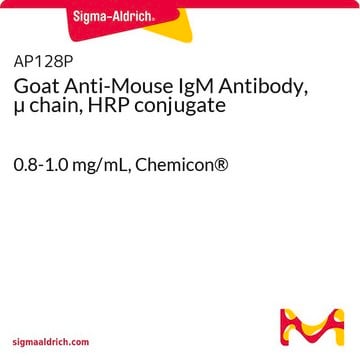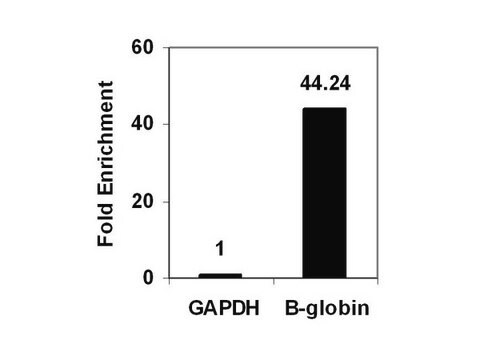12-488
Rabbit Anti-Mouse IgMµ Antibody, mu chain
Upstate®, from rabbit
Sign Into View Organizational & Contract Pricing
All Photos(1)
About This Item
UNSPSC Code:
12352203
eCl@ss:
32160702
NACRES:
NA.46
Recommended Products
biological source
rabbit
Quality Level
conjugate
unconjugated
antibody form
affinity purified immunoglobulin
antibody product type
secondary antibodies
clone
polyclonal
species reactivity
mouse
manufacturer/tradename
Upstate®
technique(s)
immunoprecipitation (IP): suitable
western blot: suitable
shipped in
dry ice
target post-translational modification
unmodified
Application
Rabbit anti-Mouse IgMμ Antibody, mu chain is an antibody against Mouse IgMμ for use in IP & WB.
Quality
Suitable for use as a bridging antibody for detection of IgM monoclonal antibodies.
Physical form
0.02M potassium phosphate, 0.15M NaCl, pH 7.2, 0.01% (w/v) sodium azide
Legal Information
UPSTATE is a registered trademark of Merck KGaA, Darmstadt, Germany
Not finding the right product?
Try our Product Selector Tool.
Storage Class Code
12 - Non Combustible Liquids
WGK
WGK 2
Flash Point(F)
Not applicable
Flash Point(C)
Not applicable
Certificates of Analysis (COA)
Search for Certificates of Analysis (COA) by entering the products Lot/Batch Number. Lot and Batch Numbers can be found on a product’s label following the words ‘Lot’ or ‘Batch’.
Already Own This Product?
Find documentation for the products that you have recently purchased in the Document Library.
Bmi1 is essential for leukemic reprogramming of myeloid progenitor cells.
J Yuan,M Takeuchi,M Negishi,H Oguro,H Ichikawa,A Iwama
Leukemia null
Pengsheng Chen et al.
Molecular & cellular proteomics : MCP, 18(7), 1320-1329 (2019-04-18)
BRCA1-associated protein 1 (BAP1) is a member of the ubiquitin C-terminal hydrolase family of deubiquitinating enzymes and is implicated in transcriptional regulation. The BAP1 gene is mutated in about 10% of patients with ccRCC, the most common form of renal
Makiko Mochizuki-Kashio et al.
Blood, 118(25), 6553-6561 (2011-11-02)
Polycomb-group (PcG) proteins are essential regulators of hematopoietic stem cells (HSCs). In contrast to Bmi1, a component of Polycomb repressive complex 1 (PRC1), the role of PRC2 and its components in hematopoiesis remains elusive. Here we show that Ezh2, a
Hideyuki Oguro et al.
The Journal of experimental medicine, 209(3), 445-454 (2012-02-22)
Polycomb-group (PcG) proteins form the multiprotein polycomb repressive complexes (PRC) 1 and 2, and function as transcriptional repressors through histone modifications. They maintain the proliferative capacity of hematopoietic stem and progenitor cells by repressing the transcription of tumor suppressor genes
Josie X Zhou et al.
The Journal of clinical investigation, 123(11), 4849-4858 (2013-11-13)
Inadequate functional β cell mass underlies both type 1 and type 2 diabetes. β Cell growth and regeneration also decrease with age through mechanisms that are not fully understood. Age-dependent loss of enhancer of zeste homolog 2 (EZH2) prevents adult
Our team of scientists has experience in all areas of research including Life Science, Material Science, Chemical Synthesis, Chromatography, Analytical and many others.
Contact Technical Service